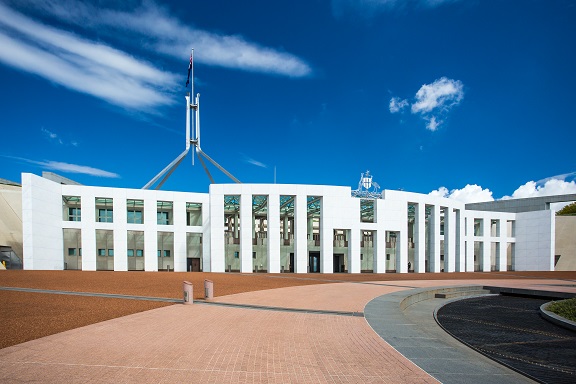Business paying its way, supporting budget improvement
13 Dec 2023
|Media Release

Strong growth in taxes paid by Australian businesses has improved the budget outlook for 2023-24, Australia’s largest and most representative business network said today.
“Australian businesses are doing the heavy lifting through increased tax receipts that have underwritten an improved budget position,” ACCI chief executive officer Andrew McKellar said
The revised 2023-24 budget deficit forecast of $1.1 billion represents a turnaround from $13.9 billion predicted in May.
“The government must now focus on forging a long-term strategy based on sustainable fiscal practices,” ACCI chief executive officer Andrew McKellar said.
“To their credit, the government has wisely used the increased revenue for debt reduction, positioning Australia for lower deficits, reduced debt growth, and diminished interest payments in the future.
“However, the slowing GDP growth forecast for 2023-24 necessitates a strategic approach to spending.
“Growth in spending is currently far outpacing growth in the economy, increasing by 4.7 per cent this year to a very high level of 25.7 per cent of GDP, and further increasing over the next two years to 26.1 per cent of GDP.
“With the future deficits to be fuelled by growth in interest payments, the NDIS, healthcare, and aged care, the government must have a strategy for addressing spending.
“What’s missing from the government’s agenda is a focus on productivity.
“In fact, the government is introducing complex, productivity-sapping industrial relations changes that choke productivity and drive up costs for businesses and consumers.
“The government has not committed to increasing productivity. It is trying to grow wages while expanding the regulations it places on business, increasing bureaucracy and stunting business growth.
“While business welcomes the $9.8 billion in reprioritisation and savings outlined by the government, such a long-sighted approach is not consistent in all the government’s plans.
“In the area of infrastructure spending, including an additional $6.8 billion to support current projects, must focus on lifting productivity. Indiscriminate spending in this area could further fuel inflation.
“The housing crisis remains a significant concern, and whilst the $3 billion New Home Bonus is a positive step, careful targeting is essential to prevent an increase in housing costs and further inflation.
“The additional $3 billion allocated to stimulate new investment in critical minerals and clean energy is an investment in Australia’s future economic resilience.
“It is critical that any cost-of-living relief, be carefully targeted to avoid exacerbating the already present inflationary pressures.
“The government must be disciplined with its spending if it is to achieve sustainable economic growth.
“You can’t rely on business to keep paying the bills if you’re tying one arm behind its back with over-regulation and industrial relations mismanagement.”


